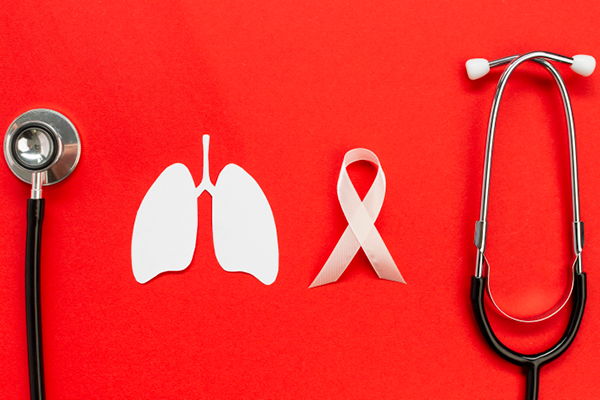For many families, lung cancer awareness hits close to home when someone they care about is a smoker. This World Lung Cancer Day, understanding risk factors, such as secondhand smoke, can help you have informed conversations with your healthcare provider and take steps to protect your lung health.
Living with a Smoker
Maybe it's your spouse who steps outside for cigarettes, your parents who have smoked for decades, or a college roommate. You might think you're safe because they don't smoke directly around you, but the truth about secondhand smoke is more complex than many people realize, becoming a high-risk factor.
If you live with someone who smokes or regularly spends time in environments where smoking occurs, you have a 20-30% increased risk of developing lung cancer compared to someone with no exposure. Even brief exposure can cause immediate harm to your lungs and cardiovascular system.
While being exposed to secondhand smoke is a significant concern, it’s helpful to understand the complete picture of lung cancer risk factors. Smoking is the most significant risk factor for lung cancer, responsible for approximately 85% of all lung cancer cases. The chemicals in tobacco smoke damage the cells lining your lungs, and this damage accumulates over time. The longer you smoke and the more cigarettes you smoke daily, the higher your risk becomes.
However, quitting smoking at any age can significantly reduce your lung cancer risk. Within a few years of quitting, your risk begins to decline, and after 10 years, your risk drops to about half that of someone who continues to smoke.
Beyond smoking and secondhand smoke exposure, several other factors can increase your lung cancer risk:
Environmental and Occupational Exposures:
- Radon gas exposure in homes and buildings
- Asbestos exposure, particularly in older buildings
- Exposure to chemicals like arsenic, chromium, and diesel exhaust
- Air pollution from vehicle emissions and industrial sources
Personal and Family History:
- Previous radiation therapy to the chest area
- Family history of lung cancer
- Personal history of certain lung diseases
- Age, most lung cancers occurring in people over 65
If someone in your life smokes, consider having a caring conversation about creating smoke-free spaces in your shared home and car. This isn't about judgment but about protecting everyone's health. Sometimes, understanding the impact on loved ones can be the motivation someone needs to quit.
Our team understands the complexities of lung cancer risk and is here to provide guidance, screening, and care when needed. If you have questions about lung cancer risk factors or would like to discuss screening options, call 704-342-9577.
published: Aug. 1, 2025, 3:12 p.m.

